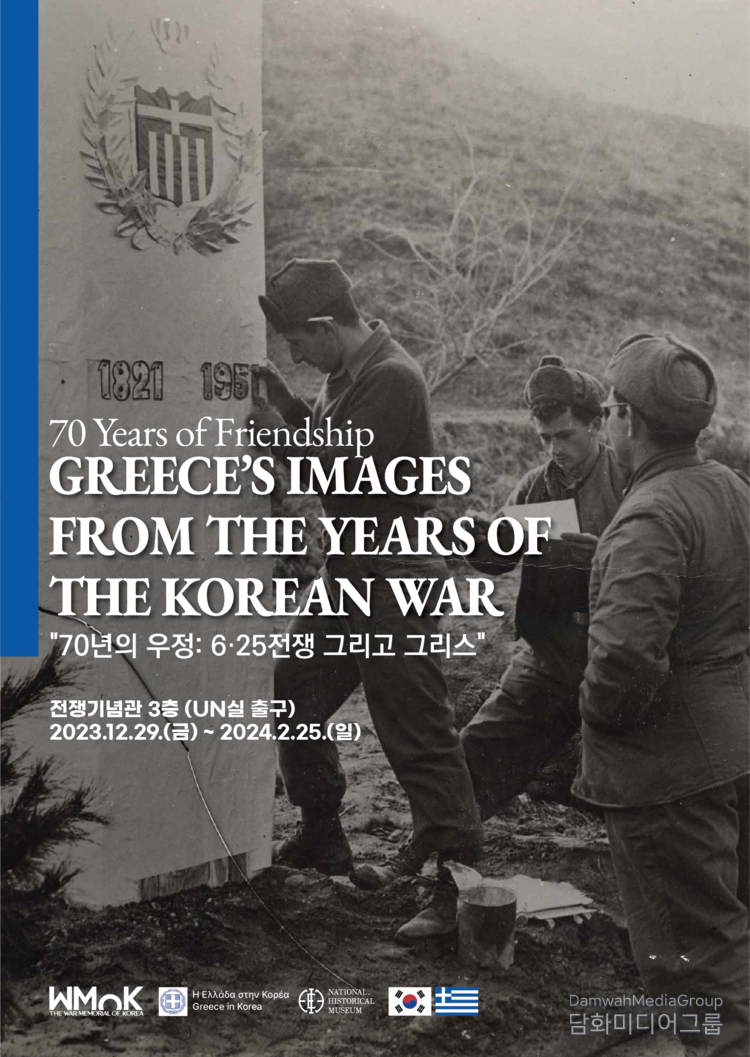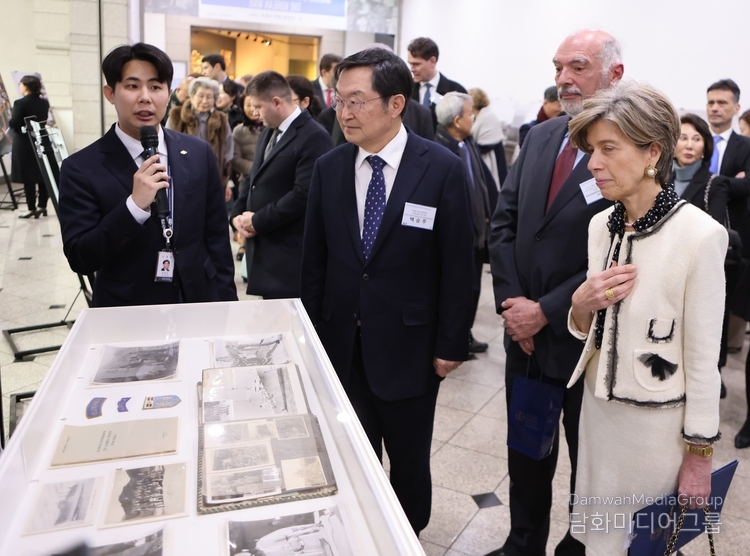By UN Journal Lee Jon-young
The National Historical Museum of Greece has been invited by the Greek Embassy in Seoul to cooperate in arranging a photography exhibition at the War Memorial of Korea from late December 2023 to February 2023. The exhibition is supported by the Greek Ministry of National Defense.
The exhibition aims to commemorate the 70th anniversary of the end of the Korean War and showcase Greece‘s image during the 1950s through American philhellene Robert McCabe’s photographs. It was a period when Greece joined the Korean War with a forceful expeditionary troop and air squadron, while simultaneously recovering from the aftermath of World War II, the Nazi Occupation, and Civil War while following a course of development.

The exhibition aims to bring closer two geographically distant countries who were unexpectedly connected at a pivotal moment in global history. The primary focus of the exhibit comprises around 65 large photographs Robert McCabe took as a student, at a time when very few people visited Greece.
The initial section of the exhibition provides Koreans with an introduction to modern Greece via a historical overview and chronological timeline elucidating Greece‘s decision to partake in a distant war. The contents incorporate McCabe’s monochrome photographs capturing Greece‘s landscapes and archaeological sites.
This segment of the exhibition is completed with photographs from the National Historical Museum’s Photographic Archive that depict the Greek military‘s involvement in the Korean War.

In addition, the section showcases several artifacts including a photo album, military badges, etc., on loan mainly from the Panhellenic Association of Korean War Veterans.
The second part of the exhibition comprises of black and white and colour photographs captured by Robert McCabe in the 1950s. These photographs provide an insight into the challenging yet hopeful life of Greeks during that era, wherein they navigated through the border that separated traditional and modern ways of life.
Robert McCabe was born in Chicago in 1934. His interest in photography developed very early, as his father was the publisher of one of New York’s first illustrated newspapers. He travelled to Greece for the first time in 1954, at the age of 20.

Since then Greece has become his second home. Photographs by Robert McCabe have been shown in many individual exhibitions in Europe, the US and many parts of Greece. More than 15 albums and exhibition catalogues have been published with photographs from Greece, France, Italy, the USA, Havana, China and Antarctica.
At first glance, Greece's participation in the Korean War seems inexplicable. For the Greeks, Korea was a distant country without any Greek presence. Nonetheless, in the context of political expediency of the time. the interests of both countries coincided.
The post-war Greek governments sought to make clear Greece's position in the Western camp in the emerging post-war world. They even sought the country's membership in NATO in order to secure US aid in the event of a future attack. Greece's response to the United Nations appeal to participate in the Korean War served these purposes.
Korea, just like Greece a few years before, were considered by the US as important bastions to contain the Soviet threat. As described by US President Harry Truman, Korea was the "Greece of the Far East. The US used both countries as a means of containing the Soviet threat under the Truman Doctrine. Both countries were involved in Cold War armed conflicts and received US military aid as part of the Cold War's anti-communist policy.
The Greek Expeditionary Force in Korea in the Korean war consisted of an Air Force Squadron (a total of nine carrier aircrafts C-47 Dakota) and military personnel from the Hellenic Infantry Arm, Greece was the fifth largest troop contributor and the eighth to commit support to United Nations during the Korean war. In total, 4.992 men fought in the Korean war (till August 1953) and 5,832 after the Armistice was signed (10.255 military personnel of the Infantry Arm and 569 of the Aviation), at a time when the Greek army headcount was 200,000.
The Greek soldiers were distinguished for their ingenuity and heroism in the battlefield. Greek casualties included 194 in action, 610 wounded and the loss of four C-47 aircrafts. The final Greek unit departed the Korean peninsula in 1955 when the Demilitarized Zone was stabilized.
